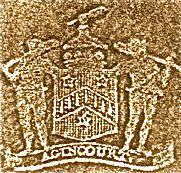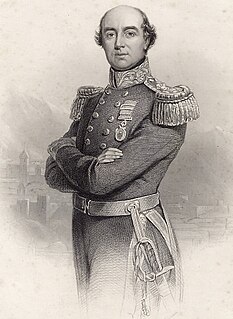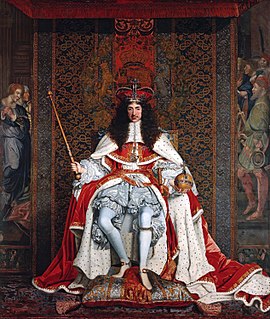See also
Topics referred to by the same term
This disambiguation page lists articles about people with the same name. If an internal link led you here, you may wish to change the link to point directly to the intended article.
Coles Child , usually known as Jeremy Child (1944-2022), was an English actor and baronet.
Coles Child may also refer to:

Wodehouse is an English surname and barony.
This is a list of people who have served as Lord Lieutenant of Pembrokeshire. After 1715, all Lord Lieutenants were also Custos Rotulorum of Pembrokeshire. The county corporate of Haverfordwest was included in this lieutenancy, except for the period from 1761 to 1931, when there was a separate Lord Lieutenant of Haverfordwest. On 31 March 1974, the post was replaced by that of Lord Lieutenant of Dyfed.
This is a list of the High Sheriffs of Northamptonshire.
Sir Coles John Jeremy Child, 3rd Baronet was a British actor.
James Henry Robert Innes-Ker, 6th Duke of Roxburghe, KT was a Scottish peer.

Baron Mansel, of Margam in the County of Glamorgan, was a title in the Peerage of Great Britain. It was created on 1 January 1712 for Sir Thomas Mansel, 5th Baronet, previously Member of Parliament for Cardiff and Glamorganshire. His ancestor had been created a Baronet, of Margam in the County of Glamorgan, in the Baronetage of England on 22 May 1611. The fourth Baronet represented Glamorgan in the House of Commons. The fourth Baron sat as Member of Parliament for Cardiff. On his death 29 November 1750 the barony and baronetcy became extinct.

Sir William James Herschel, 2nd Baronet was a British ICS officer in India who used fingerprints for identification on contracts.
The High Sheriff of Devon is the Queen's representative for the County of Devon, a territory known as his/her bailiwick. Selected from three nominated people, they hold the office for one year. They have judicial, ceremonial and administrative functions and execute High Court Writs. The title was historically "Sheriff of Devon", but changed in 1974 to "High Sheriff of Devon".
This is a list of High Sheriffs of Lincolnshire.
The High Sheriff of Essex was an ancient sheriff title originating in the time of the Angles, not long after the invasion of the Kingdom of England, which was in existence for around a thousand years. On 1 April 1974, under the provisions of the Local Government Act 1972, the title of Sheriff of Essex was retitled High Sheriff of Essex. The high shrievalties are the oldest secular titles under the Crown in England and Wales, their purpose being to represent the monarch at a local level, historically in the shires.
The 37th Regiment of Foot was a line infantry regiment of the British Army, raised in Ireland in February 1702. Under the Childers Reforms it amalgamated with the 67th Regiment of Foot to become the Hampshire Regiment in 1881.

Sir Richard Warwick Bampfylde, 4th Baronet of Poltimore, North Molton, Warleigh, Tamerton Foliot and Copplestone in Devon and of Hardington in Somerset, England, was Member of Parliament for Exeter (1743–47) and for Devonshire (1747–76).
Buller is an English surname. It may refer to:

There have been twenty one baronetcies created for persons with the surname Williams, eight in the Baronetage of England, three in the Baronetage of Great Britain and ten in the Baronetage of the United Kingdom. Only six of the creations are extant as of 2017.
There have been four baronetcies created for persons with the surname Child, two in the Baronetage of England and two in the Baronetage of the United Kingdom.

The High Sheriff of Lancashire is an ancient officer, now largely ceremonial, granted to Lancashire, a county in North West England. High Shrievalties are the oldest secular titles under the Crown, in England and Wales. The High Sheriff of Lancashire is the representative of the monarch in the county, and is the "Keeper of The Queen's Peace" in the county, executing judgements of the High Court through an Under Sheriff.

The Knights of the Royal Oak was an intended order of knighthood. It was proposed in 1660 at the time of the restoration of Charles II of England, known as the English Restoration. It was to be a reward to those Englishmen who faithfully & actively supported him during his exile in France. The knights so created were to be called "Knights of the Royal Oak", and bestowed with a silver medal, on a ribbon, depicting the king in the Royal oak tree, a reference to the oak tree at Boscobel House, then called the "Oak of Boscobel", in which King Charles II hid to escape the Roundheads after the Battle of Worcester in 1651. Men were selected from all the counties of England and Wales, with the number from each county being in proportion to the population. William Dugdale in 1681 noted 687 names, each with a valuation of their estate in pounds per year. The estates of 18 men were valued at more than £3,000 per year. The names of the recipients are also listed in the baronetages, published in five volumes, 1741.
The High Sheriff of Mayo was the British Crown's judicial representative in County Mayo, Ireland from the 16th century until 1922, when the office was abolished in the new Free State and replaced by the office of Mayo County Sheriff. The sheriff had judicial, electoral, ceremonial and administrative functions and executed High Court Writs. In 1908, an Order in Council made the Lord-Lieutenant the Sovereign's prime representative in a county and reduced the High Sheriff's precedence. However the sheriff retained his responsibilities for the preservation of law and order in the county. The usual procedure for appointing the sheriff from 1660 onwards was that three persons were nominated at the beginning of each year from the county and the Lord Lieutenant then appointed his choice as High Sheriff for the remainder of the year. Often the other nominees were appointed as under-sheriffs. Sometimes a sheriff did not fulfil his entire term through death or other event and another sheriff was then appointed for the remainder of the year. The dates given hereunder are the dates of appointment. All addresses are in County Mayo unless stated otherwise.
Nicholas Cole may refer to: